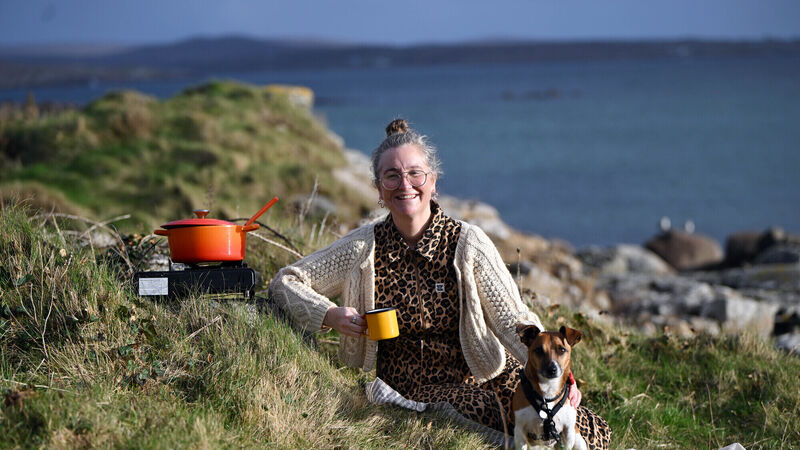Aoife McElwain's 'Messy': A big book of comfort food for beginners

Food writer Aoife McElwain pictured near Roundstone, County Galway with her companion dog Walter . Photo: Ray Ryan
Try from €1.50 / week
SUBSCRIBE
Food writer Aoife McElwain pictured near Roundstone, County Galway with her companion dog Walter . Photo: Ray Ryan
WE KNOW we should be cooking at home: It saves money, cuts down on food waste, and helps us rely less on ultra-processed food. Making yourself and others something good to eat is a way of being well and staying well.
But in an age of performative cooking and beautifully styled plates on social media, what happens when the cake batter splits, the pâté looks like cat food, and the stew sticks to the pot? Instead of telling the tale of a cosy family dinner through food, it might feel as if the Instagram story that you have to tell is one of burnt bread, over-cooked potatoes, and pure despair at trying to get something edible on the table. And why is it that so many of the recipes we cook at home never look like the results in the video or photos?
Already a subscriber? Sign in
You have reached your article limit.
Annual €130 €80
Best value
Monthly €12€6 / month
Introductory offers for new customers. Annual billed once for first year. Renews at €130. Monthly initial discount (first 3 months) billed monthly, then €12 a month. Ts&Cs apply.
Newsletter
Feast on delicious recipes and eat your way across the island with the best reviews from our award-winning food writers.
Newsletter
The best food, health, entertainment and lifestyle content from the Irish Examiner, direct to your inbox.
© Examiner Echo Group Limited